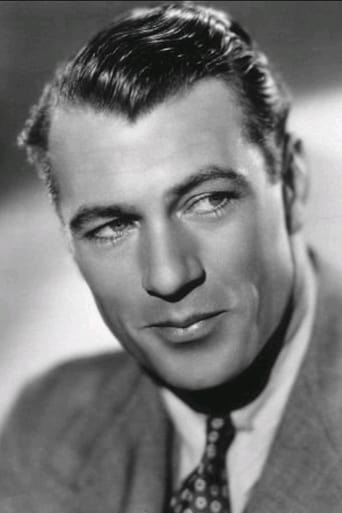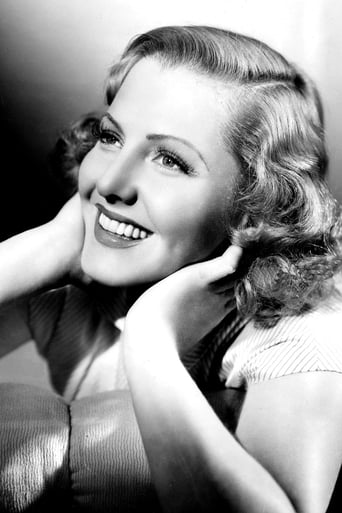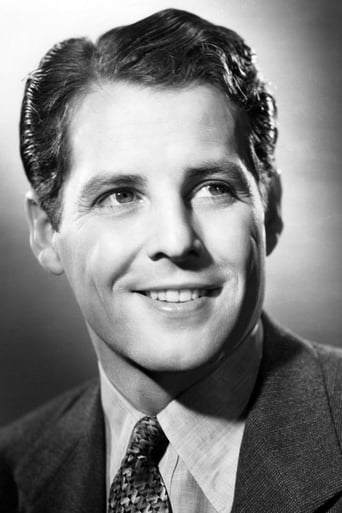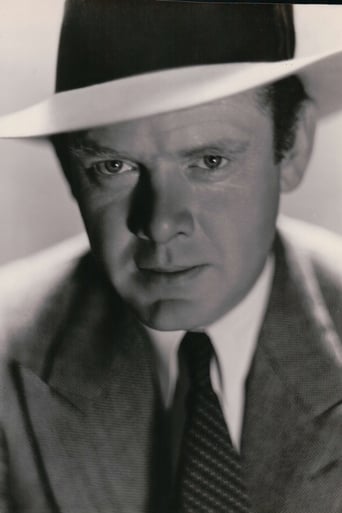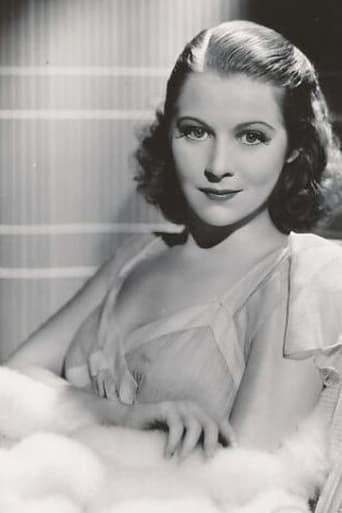Sharkflei
Your blood may run cold, but you now find yourself pinioned to the story.
KnotStronger
This is a must-see and one of the best documentaries - and films - of this year.
Tayloriona
Although I seem to have had higher expectations than I thought, the movie is super entertaining.
Beulah Bram
A film of deceptively outspoken contemporary relevance, this is cinema at its most alert, alarming and alive.
discount1957
Conceived and executed with all the brio typical of a De Mille epic - all the 64 pistols used in the film came from his personal collection - 'The Plainsman', for all its attention to petty historical detail (De Mille was insistent that the Phrase 'Go West, Young man' be correctly attributed to John B. Searle, the Editor of The Terra Haute Express) plays fast and loose with history.Cooper is the austere Hickok, Ellison (a regular in the Hopalong Cassidy series, loaned to De Mille by 'Pops' Sherman)a boyish Buffalo Bill, Arthur a breezy Calamity Jane and Miljan a heroic Custer to whose defence all three come. Bickford is the smooth gun running villain. De Mille's well-practised abilities in handling big budgets, big casts and big stories overcame the doggedly domestic drama of Cooper and Arthur's relationship. Slow moving and overly romantic by modern standards in its depiction of Westward expansion, 'The Plainsman' remains an entertaining spectacle.In 1966, Universal remade the movie as a vastly inferior telefilm.Phil Hardy
nnnn45089191
The master of movie spectacle Cecil B. De Mille goes West. Using three legends of the old west as its protagonists (they probably never met),Gary Cooper is portraying Wild Bill Hickock,James Ellison as Buffalo Bill and Jean Arthur does make a nice Calamity Jane. The story serves only for De Mille to hang some marvelous action sequences on, like the big Indian attack.Scenes like that are extremely well done.If you don't mind the somewhat over-the-top performances of the cast this is an very entertaining western.Look out for a very young Anthony Quinn essaying the role of an Indian brave who participated at the battle of Little Big Horn.This part got him at least noticed in Hollywood.
skallisjr
This film provides the saga of a legendary Wild Bill Hickock. He, Buffalo Bill Cody, and Calamity Jane, are the central characters.As the Civil War closes, Lincoln mentions his concern that the country's dynamism would be enhanced if people would follow the advice, "Go West, young man," which, mercifully, the film didn't erroneously attribute to Horace Greeley, as a number of others did. But then, he gets assassinated, and some financiers speculate that they can get rich selling weapons to the American Indians.In the meantime, we see Wild Bill Hickock, who interacts with a small boy, while a steamboat is loading at a dock along the Mississippi. Wild Bill uses a Bowie knife, which he eventually gives to the boy, calling it an "Arkansas Toothpick," which in reality was a different type of knife, though both were used throughout the frontier.Hickock eventually meets Buffalo Bill Cody, who looks close to the photographs and paintings of the actual man. Cody has just gotten married, and is bringing his bride to the Old West to settle down.When they arrive at their destination, they run into Calamity Jane, who has a crush on Hickock. She looks at Cody's wife, and asks Buffalo Bill, "Is this your mopsy?" The line was one that caused the Hayes Board some problem, since one definition of "mopsy" was prostitute. Demille wanted the line in, and one of his aides pointed out that in Beatrix Potter's books about Peter Rabbit, three of the rabbits were Flopsy, Mopsy, and Cottontail. He pointed this out and asked the censors to identify "the rabbit of ill virtue." It worked; the line stayed in.The Indians were getting restless, in part because of the superior weaponry they got from the agent of the Eastern financiers. Cody and Hickock were asked to help scout the area, so that troops could get safely through to a beleaguered area. Cody led the troops; Hickock went to check out the activities of an Indian chief, who was an old acquaintance, and who was leading some of the hostile Indians.Calamity Jane gets captured, and Hickock gets captured trying to save her. They are brought to the chief, and although neither would talk, torture applied to Hickock breaks Calamity Jane's willpower, and she tells the route Cody is using.The two are released, and Hickock joins up with Cody and his forces, in part to alert them they're walking into a trap. With Hickok's help, they hold off the Indian attack.Hickock decides to go after the gun runners, and finally takes them prisoner. As they're waiting for authorities, Hickock is gunned down by being shot in the back while playing cards.There are numerous historic anomalies in the film, but it retains the flavor of legend. Pretty good for the 1930s.
theowinthrop
After the failure of "The Crusades" at the box office, Cecil B. DeMille stopped doing films about non-American history. His films for the next thirteen years were about our history from Jean Lafitte to World War II (Dr. Wassell). The first in order of production was this film, starring Gary Cooper as Wild Bill Hickok, with Jean Arthur as Calamity Jane. James Ellison was Buffalo Bill, John Miljan (not a villain as usual) was General George A. Custer, and Anthony Quinn was one of the Indians who fought at Little Big Horn. The villains were led by Charles Bickford (selling arms to the Indians) and Porter Hall as Jack McCall (who killed Wild Bill Hickok).Basically the film takes up the history of the U.S. after the Civil War. Lincoln is shown at the start talking about what is the next step now that Lee has surrendered. Lincoln talks about the need to secure the west (more about this point later). Then he announces he has to go to the theater. That April 14th must have been very busy for Abe - in "Virginia City" he grants a pardon to Errol Flynn at the request of Miriam Hopkins on the same date.Actually, while Lincoln was concerned about the West, his immediate thoughts on the last day of his Presidency were about reunifying the former Confederate states and it's citizens into the Union as soon as possible. It was Reconstruction that occupied his attention, not the west (except for the problems of Maximillian and his French controlled forces in Mexico against Juarez). But he had been involved in actual problems with the West. In 1862 he sent disgraced General John Pope, the loser at Second Manassas, to Minnesota to put down a serious Indian war by the Sioux (the subject of McKinley Kantor's novel, "Sprit Lake". Pope, incompetent against Lee and Jackson, turned out to be quite effective here, and the revolt was smashed.However, with all Lincoln's actual attention to western problems, it is doubtful that he says (as Cooper repeats at least once), "The frontier should be secure." There is nothing to say he could not have said it, but it is hardly a profound pronouncement by a leading statesman. Like saying, Teddy Roosevelt said, "Eat a good breakfast every morning for your health." It is not a profound statement of policy. It is, at best, a statement of recognizable fact. Cooper turning it into a minor mantra, like Lincoln's version of the Monroe Doctrine, is ridiculous...typical of the way DeMille's scripts have really bad errors of common sense in them.However, this is not a ruinous mistake. "The Plainsman" is an adventure film, and as such it has the full benefit of DeMille the film creator of spectacle. As such it is well worth watching. But not as a textbook on Lincoln's political ideas or his quotable legacy.
